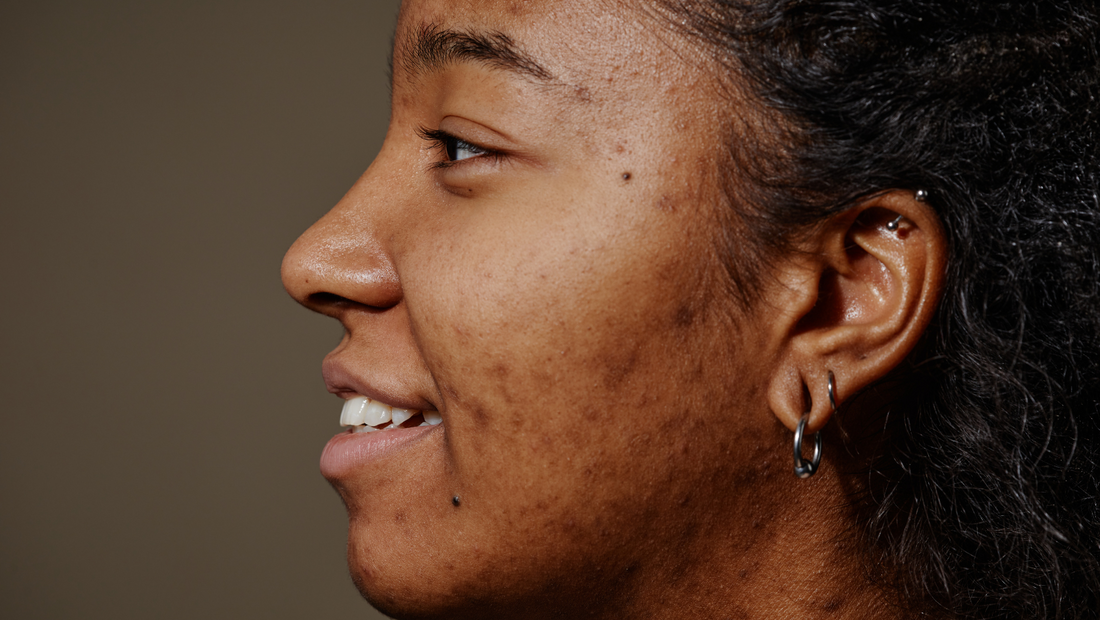Acne, the bane of many people's existence, is a common skin condition that can affect individuals of all ages. It manifests in various forms, including pimples, blackheads, whiteheads, painful lumps under the skin, large solid lumps, and small red tender bumps. While acne is a widespread problem, its causes are multifactorial, stemming from hormonal imbalances, dietary choices, stress, certain medications, and even behavioral habits like smoking or neglecting post-workout hygiene. The journey to clear, acne-free skin is often a challenging and emotionally taxing one. However, with patience and consistent care, it is possible to achieve a smoother complexion. Dermatologists recommend a comprehensive approach to acne treatment, encompassing cleansing, exfoliation, prescription-strength products, moisturization, and daily sunscreen use. In this article, we will delve deeper into the symptoms of acne, its causes, and the key steps to effectively manage and treat it.
Common Symptoms of Acne
Before delving into the causes and treatment of acne, it's important to understand the various symptoms and forms it can take. Acne typically presents itself in the following ways:
- Pimples: These are small, raised bumps on the skin that may be red, inflamed, and filled with pus. Pimples are one of the most recognizable and bothersome acne symptoms.
- Blackheads: Blackheads are open comedones, which are essentially clogged hair follicles or pores. They appear as small black dots on the skin's surface and are often associated with oily skin.
- Whiteheads: Whiteheads, also known as closed comedones, are similar to blackheads but are closed at the surface. They manifest as small, white or flesh-colored bumps.
- Painful, Pus-filled Lumps Under the Skin: These deep, painful lumps are called cysts or nodules. They form beneath the skin's surface and can be quite painful. They are filled with pus and can take a long time to heal.
- Large, Solid, Painful Lumps Under the Skin: These are similar to cysts but are usually harder and more solid in texture. They can also be painful and take time to resolve.
- Small Red, Tender Bumps: These are papules, which are red, raised bumps on the skin's surface. They can be tender to the touch and are often seen in clusters.
What Causes Acne?
Acne is a complex skin condition with multiple contributing factors, making it challenging to pinpoint a single cause. Instead, acne typically arises from a combination of triggers. Understanding these triggers is crucial for effective management and treatment. Here are some of the primary causes of acne:
- Hormonal Imbalances: Hormones, especially androgens like testosterone, play a significant role in acne development. Hormonal fluctuations can lead to increased oil production in the skin, which can clog pores and lead to acne.
- Diet: Although the link between diet and acne is still a topic of ongoing research, some studies suggest that high-glycemic-index foods and dairy products may exacerbate acne in some individuals.
- Stress: Stress can trigger hormonal changes that influence oil production and inflammation in the skin, potentially worsening acne.
- Medications: Some medications, including certain steroids, anticonvulsants, and birth control pills, can contribute to acne breakouts as a side effect.
- Poor Behavioral Habits: Smoking and neglecting proper skincare routines, such as not cleansing after a workout, can lead to acne or exacerbate existing acne.

When Can I Expect Clearer Skin?
Dealing with acne can be a frustrating experience, as it often takes time to see noticeable improvements. It's essential to approach acne treatment with patience and consistency, as it is a marathon rather than a sprint. Dermatologists typically recommend allowing 6 to 8 weeks before expecting significant results from a treatment regimen. During this time, it's important to adhere to a comprehensive skincare routine to maximize the chances of achieving clear skin.
The Basics of Treating Acne
To effectively manage and treat acne, it's crucial to follow a well-rounded skincare routine. Here are the fundamental steps recommended by dermatologists:
- Gentle Cleansing: Start your skincare routine with a gentle, water-soluble cleanser that you use morning and evening. Cleansing helps remove debris, excess oil, and impurities from the skin's surface, preparing it for the subsequent treatment steps.
- Exfoliation: Exfoliation is a key step in preventing clogged pores and promoting skin cell turnover. Look for products containing alpha-hydroxy acids (like glycolic acid and lactic acid) and beta-hydroxy acid (salicylic acid). However, it's important not to overdo exfoliation, as it can lead to skin irritation. If you have sensitive skin, opt for gentler exfoliants.
- Prescription-Strength Products: For direct treatment of acne, consider using prescription-strength products containing topical retinol or retinoids (e.g., adapalene). These products help unclog pores, reduce inflammation, and promote skin renewal. Consult a dermatologist to determine the most suitable prescription for your specific skin needs.
- Moisturization: Contrary to popular belief, even acne-prone skin needs moisturization. Use oil-free or non-comedogenic moisturizers to keep the skin hydrated without clogging pores. Proper moisturization can also help prevent excessive dryness, which can trigger the skin to produce more oil.
- Sun Protection (SPF): Don't underestimate the importance of daily sunscreen application, even if you have acne. Sunscreen helps protect the skin from harmful UV rays and prevents further skin damage. Moreover, it can aid in the fading of dark spots caused by acne. Choose a broad-spectrum SPF with at least SPF 30, and apply it every morning.

The Takeaway
Acne is a common skin condition that can manifest in various forms, including pimples, blackheads, whiteheads, cysts, nodules, and papules. Its causes are multifactorial, involving hormonal imbalances, diet, stress, medications, and poor behavioral habits. Achieving clear, acne-free skin requires patience and consistency, as it's a process that takes time. Dermatologists recommend a comprehensive skincare routine that includes gentle cleansing, exfoliation, prescription-strength products, moisturization, and daily sunscreen use to effectively manage and treat acne. By following these steps and seeking professional guidance when needed, individuals can work towards clearer, healthier skin and greater confidence. Remember, managing acne is a marathon, not a sprint, so stay committed to your skincare regimen for the best results.
